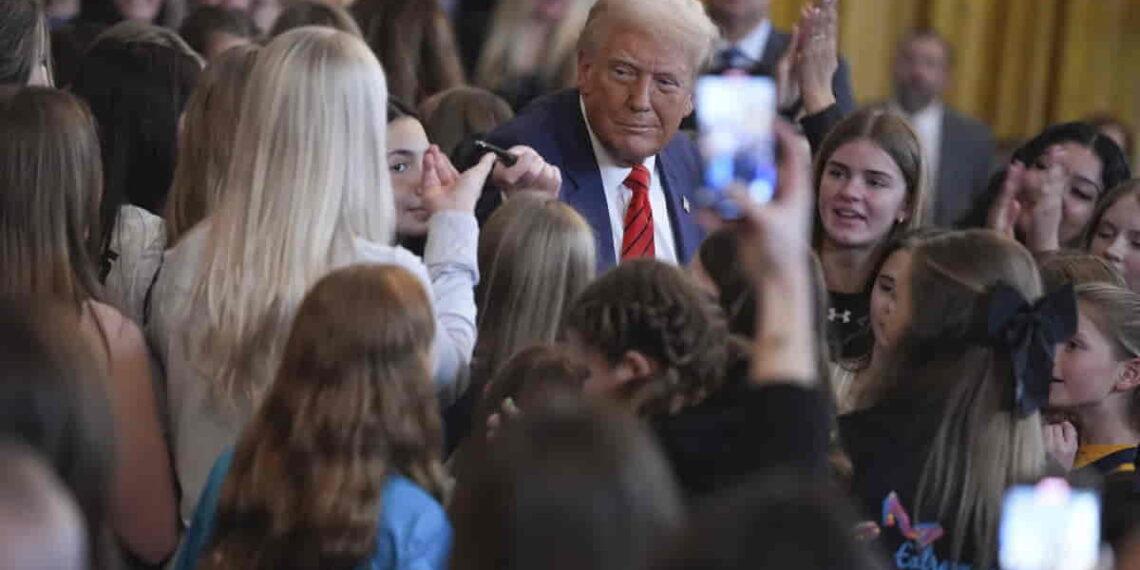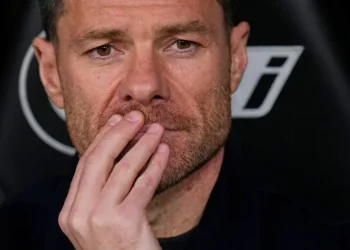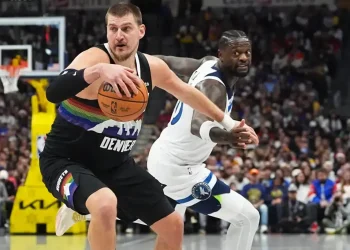Trump Signs Executive Order Barring Transgender Athletes from Women’s Sports
President Donald Trump signed an executive order on Wednesday aimed at banning transgender athletes from competing in girls’ and women’s sports. The order, titled “Keeping Men Out of Women’s Sports,” directs federal agencies to enforce Title IX based on gender assigned at birth, reinforcing the administration’s stance on the issue.
Key Points of Trump’s Executive Order
Bans transgender athletes from girls’ and women’s sports in schools and federally funded institutions.
Empowers the Education Department to penalize schools that do not comply.
Directs federal agencies to enforce single-sex sports and locker rooms.
Warns the International Olympic Committee (IOC) about the U.S. stance on transgender participation.
Restricts visas for transgender athletes trying to compete in the U.S.
During the signing ceremony in the White House’s East Room, Trump declared:
“With this executive order, the war on women’s sports is over.”
Among those present were lawmakers and female athletes who have advocated for restrictions on transgender participation, including former collegiate swimmer Riley Gaines.
Title IX & Federal Funding at the Center of Debate
The order reinforces Title IX, the law that prohibits sex-based discrimination in federally funded education programs. Under Trump’s directive, schools that allow transgender athletes to compete in female sports could lose federal funding.
White House Press Secretary Karoline Leavitt said:
“This order upholds the promise of Title IX and will require immediate enforcement actions against schools that violate it.”
The administration has already begun investigations into schools. Denver public schools are currently under review for replacing a girls’ bathroom with an all-gender restroom while maintaining a boys-only facility.
Impact on the 2028 Los Angeles Olympics
Trump also warned the International Olympic Committee (IOC) about the U.S. stance on transgender athletes ahead of the 2028 Summer Olympics in Los Angeles.
“America categorically rejects transgender lunacy. We want the IOC to change its policies.”
He further announced that Homeland Security Director Kristi Noem would deny visas to transgender athletes attempting to compete in the Games.
The IOC has historically deferred decisions on transgender participation to individual sports federations, but that could change under new leadership. Sebastian Coe, a strong advocate for limiting female sports to cisgender women, is a leading candidate to replace current IOC president Thomas Bach in March.
Legal Challenges & Backlash
Trump’s executive order is the latest in a series of policies targeting transgender rights, including:
? Proposed bans on gender-affirming care for transgender minors.
? Restrictions on teaching gender identity in schools.
? Barring transgender individuals from serving in the military.
The order has sparked immediate backlash from civil rights groups and LGBTQ+ advocates.
Fatima Goss Graves, CEO of the National Women’s Law Center, stated:
“Trans students do not pose threats to sports, schools, or this country. They deserve the same opportunities as their peers.”
Organizations such as GLAAD and the National Women’s Law Center have condemned the order, while civil rights lawyers are preparing legal challenges, arguing that Trump may have overstepped presidential authority.
NCAA & Ongoing Legal Battles
The NCAA (National Collegiate Athletic Association) has announced that its Board of Governors is reviewing the order to determine its next steps.
NCAA President Charlie Baker responded:
“We will take necessary steps to align NCAA policy, subject to further guidance from the administration.”
The order also comes just one day after former teammates of transgender swimmer Lia Thomas filed a lawsuit against the NCAA, Ivy League, Harvard, and the University of Pennsylvania, claiming that allowing Thomas to compete violated Title IX.
What’s Next?
With legal battles expected, the fight over transgender participation in sports is far from over. As states pass their own laws on the issue, the NCAA, IOC, and federal courts will play key roles in determining how this policy unfolds.
What do you think about this executive order? Share your thoughts below!
This article was rewritten by JournosNews.com based on verified reporting from trusted sources. The content has been independently reviewed, fact-checked, and edited for accuracy, neutrality, tone, and global readability in accordance with Google News and AdSense standards.
All opinions, quotes, or statements from contributors, experts, or sourced organizations do not necessarily reflect the views of JournosNews.com. JournosNews.com maintains full editorial independence from any external funders, sponsors, or organizations.
Stay informed with JournosNews.com — your trusted source for verified global reporting and in-depth analysis. Follow us on Google News, BlueSky, and X for real-time updates.














